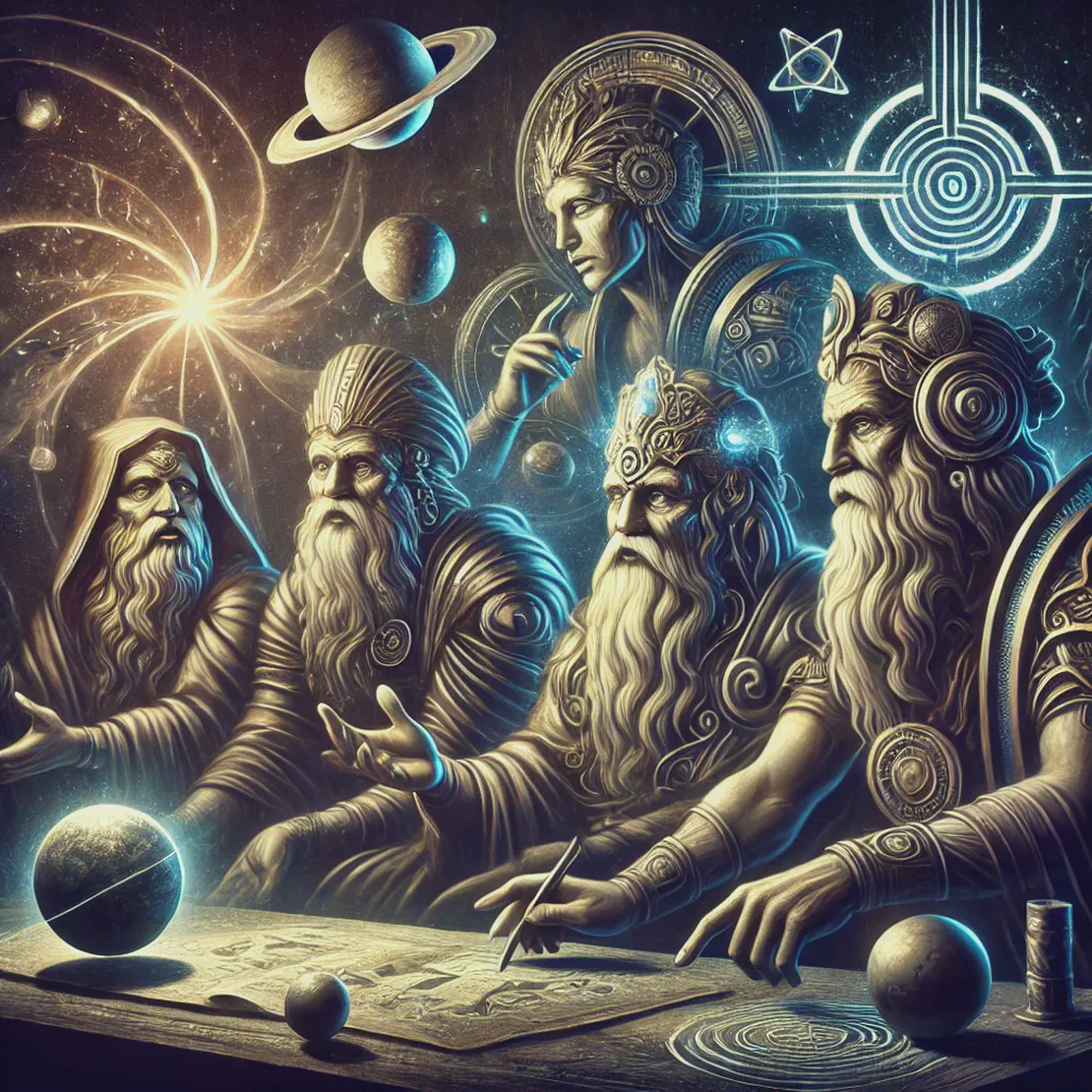
#449 – Graham Hancock: Lost Civilization of the Ice Age & Ancient Human History
- Lex Fridman Podcast
- Archaeology , Lost civilization , Ice age , History
- October 16, 2024
Table of Contents
At a Glance
-
Exploration of Ancient Civilizations - “Graham Hancock, a journalist and author who has explored the controversial possibility that there existed a lost civilization during the last Ice Age.” This highlights the central theme of the podcast which discusses historical mysteries and alternative historical theories.
-
Impact of Cataclysms on Civilization - “the Younger Dryas really ticks all the boxes as a worldwide disaster, which definitely involved sea level rise.” Important because it ties into Hancock’s theories about global cataclysms impacting early human civilizations, which is a recurring discussion point.
-
Criticism of Archaeological Orthodoxy - “It’s a very arrogant and silly position of archaeology because archaeological theories are always being overthrown.” This quote captures Hancock’s critical view on the static nature of archaeological interpretations and the resistance to new theories.
-
Debate Dynamics - “I was definitely up against a superior debater… I admire about Flint something else, which is that he was willing to be there.” Hancock reflects on his debate with Flint Dibble, highlighting the challenges and respect in academic debates which adds a personal touch to the discussion.
-
Role of Oral Traditions - “One of the things that happens with the written word is that you gradually lose your memory.” This point is significant as it discusses how oral traditions are undervalued and their role in preserving history.
-
Use of Psychedelics in Understanding Consciousness - “encounters with sentient others who wish to teach them moral lessons.” This is both a serious and intriguing point discussing the potential of psychedelics to access deeper levels of human consciousness and their implications on morality and society.
-
Proposal for Political Leaders - “I would make it a law, that anybody running for a powerful political position… has to undergo the ayahuasca ordeal first.” This is a humorous yet thought-provoking suggestion that ties into the broader discussion of ethics and leadership.
What to Do
-
‘Talking is a tool to understand your mind and navigate life’ - Talking, particularly through talk therapy, is emphasized as a crucial method for understanding one’s own mind and developing strategies for managing life’s challenges.
-
‘Check out BetterHelp for talk therapy’ - The recommendation here is based on the belief that professional guidance can be conveniently accessed through platforms like BetterHelp, facilitating personal growth and mental health management.
-
‘Consider the power of altered states of consciousness’ - The discussion points to the potential insights and therapeutic benefits that can be gained from exploring consciousness through methods like psychedelic experiences, suggesting they could play a role in personal and communal development.
-
‘Use of psychedelics in therapy could open new understandings’ - The conversation notes ongoing research into psychedelics like DMT, which might revolutionize our understanding of consciousness and its therapeutic applications, hinting at the importance of remaining open to emerging scientific discoveries.
-
‘Engage with the idea that all life possesses consciousness’ - The recognition of consciousness in all living beings could expand our empathy and understanding, potentially leading to more compassionate interactions and societal structures.
-
‘Explore the potential of AI in understanding consciousness’ - The dialogue suggests that artificial intelligence might provide new pathways to understanding human consciousness and even the consciousness of other beings, urging openness to technological advancements in cognitive science.
-
‘Consider the therapeutic and societal benefits of ayahuasca’ - Mentioning the profound personal insights and communal benefits observed in ayahuasca experiences suggests that structured psychedelic experiences could be beneficial for leaders and communities, advocating for controlled, respectful use in therapeutic settings.
-
‘Value the historical and cultural insights of traditional and indigenous knowledge’ - The call to pay attention to ancient myths and traditional knowledge in understanding human history and consciousness advocates for a broader, more inclusive view of wisdom that includes long-standing human experiences and insights.
What to Get
-
Ayahuasca - Suggested for potential leaders to undergo multiple sessions to potentially enhance their moral and community-oriented decision-making skills.
-
The Mind in the Cave: Consciousness and the Origins of Art by David Lewis-Williams - Amazon - Discussed in the context of understanding ancient cave and rock art as expressions of altered states of consciousness.
-
Fingerprints of the Gods: The Evidence of Earth’s Lost Civilization by Graham Hancock - Amazon
-
America Before: The Key to Earth’s Lost Civilization by Graham Hancock - Amazon
-
Magicians of the Gods: The Forgotten Wisdom of Earth’s Lost Civilization by Graham Hancock - Amazon
Summary
In this intriguing episode of the Lex Friedman podcast, the conversation revolves around several thought-provoking topics, ranging from personal anecdotes to deep historical theories. Lex begins by discussing his personal experiences with training and hydration, highlighting the benefits of using Element, an electrolyte mix that he finds revitalizing especially after intense physical activities like Jiu Jitsu. He describes the grueling session and how the product helps him recover, setting a relatable and humanizing tone for the episode.
As the discussion shifts to technology and entrepreneurial ventures, Lex shares his experiences with Shopify and programming. He talks about setting up an online store and delves into his newfound interest in programming languages, particularly Ruby on Rails. His curiosity about technology is not just limited to its applications but extends to understanding its foundational aspects to engage more deeply with upcoming guests who are programmers.
The conversation takes a profound turn when guest Graham Hancock joins to discuss his controversial and fascinating theories about ancient civilizations. Hancock challenges the conventional archaeological narrative that human history has been a linear progression from hunter-gatherers to agricultural societies. He proposes that there was an advanced Ice Age civilization that possibly influenced the development of known ancient civilizations like Egypt, Mesopotamia, and others. Hancock’s theory is built on a combination of mythological narratives, geological evidence, and archaeological anomalies that suggest a more complex history than is widely accepted.
The episode also delves into the philosophical and existential, touching on topics like the role of therapy and mental health. Lex endorses Better Help, an online therapy service, discussing the importance of mental health and the effectiveness of talk therapy in navigating life’s challenges. This is tied to a broader discussion about the human condition, fear of death, and how these fundamental concerns influence our daily lives and long-term choices.
In essence, the podcast episode is a rich tapestry of personal insights, technological enthusiasm, entrepreneurial advice, and alternative historical theories. Each segment offers fresh perspectives, from practical advice on hydration and online business tools to challenging existing narratives about human history and civilization. The episode is not only informative but also deeply engaging, encouraging listeners to question and explore beyond conventional wisdom.


